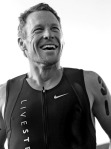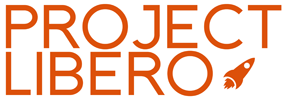Two very different characters. Two very different approaches. One a mild mannered, unassuming team player, the other a brash, complex leader. Both elevated to near mythic status by amazing feats of endurance and achievement. This week has seen one of them die surrounded by family and away from the media glare whilst the other committed professional suicide giving up on a long battle to control the world’s perception of his achievements.
Enough has been written about the two Armstrong’s in the news this week that most people know their stories. They were heroes to many and their legacy will be picked over and debated a lot. I’d just like to write a little about what each of them meant to me.

So, Neil Armstrong, first civilian pilot to join NASA, still holder of the manned flight speed record, first man on the moon – a lifetime of firsts. Yet if you asked him (unlikely you’d get the chance as he was such a private man) he would be the first to point to all the others supporting the space programme, to suggest that it was just his turn in the rotation that led to him being mission commander for the moon shot. Those of you who have seen my website or watched my short film will now how fascinated I am by the space programme, (even the company name is a kind of homage to Projects Mercury, Gemini and Apollo). To find that the man lauded as the pinnacle of those achievements is a humble, shy guy is a revelation. No self aggrandising, no merchandising, no attempt to exploit his fame. Just an ordinary guy doing extraordinary things – and no, I don’t mean the moon landing but rather his decision to retire from public life to teach the next generation of undergraduates. I’m glad NASA respected that decision, for me it’s the measure of the man. He saw the bigger picture and felt he could offer more in that role.

Now we turn to Lance Armstrong. The only man to win 7 Tours de France, a cycling colossus and the man who beat debilitating cancer and has raised $500 million. However, unlike his namesake he was an arch manipulator of the media, keen to present his version of events, not content to let others report and analyse. Of course the press and authors have also had a field day with the amazing (too good to be true perhaps?) story of his illness and subsequent return to dominate the sport. Although details remain indistinct no one in the cycling world emerges well from this story. It seems that even the governing body looked the other way at certain irregularities in order to protect its “brand”.
Now whilst Neil Armstrong was an example to me I never saw Lance in that way. I do however have a friend who went through testicular cancer around the same time as Lance. My friend devoured the books, wore the wristband, donated money and after losing one testicle has been cancer free for over 6 years. I saw him on Thursday before the news broke. I pointed to his wristband and asked what he felt as the deadline approached. His look of regret was painful to behold. He admitted that the weight of evidence was always against Armstrong but that his books were still an inspiration. He said he would probably still wear the wristband and we discussed Lance’s legacy. Was all the fund raising and awareness work enough of a counter balance to the cheating?
The debate over Lance Armstrong will run and run until the full evidence is presented. Everyone will have their own opinions. For me, it boils down to one question “Is a flawed hero better than no hero at all?” I’m still wrestling with that one myself. Not all life is as black and white as that moon footage (and lets face it, some conspiracy theorists don’t even accept that).
I’d be interested to hear your views, be they on Neil Armstrong, Lance Armstrong or just the nature of the heroes we hold up to the world. Is it their values or their achievements which mean the most?

Reblogged this on ending one minute at a time.
A hero built on cheating is no hero at all.
I don’t believe in black and white situations in life, I know that every hero has some skeletons in the closest, but sometimes there are darker shades of grey.
Hi Robert, great to get your input on the blog. I think it’s a really valid point that we all have some skeletons. I guess I’d ask “is there an acceptable limit?” and David’s later point about society forming a view on what is “right” could just as equally apply to what is acceptable.
Pingback: ending one minute at a time
I would say a hero is built on how they live their lives, how they think, and what they accomplish because of those things. If they put the effort forth to do things in an honest and proper way, they are heroic in the accomplishments they achieve. Manipulation of things to make a better appearance than the reality might be isn’t quite the same as doing what you do and letting things be as they are going to be as a result.
Hi Magnus
Thanks for stopping by and commenting. Your comment makes me wonder then if Lance Armstrong could be considered a hero for his work against cancer but perhaps not for his cycling if the doping allegations are true. Of course then we have the tricky dilemma that he raised so much money for cancer research based on his appeal as a cyclist. Can one counterbalance the other?
Hmm, interesting thoughts! Taking popularity of being a cyclist and using it for something seemingly good like raising money for cancer research might be considered a good thing. But perhaps it is rather commonplace nowadays for celebrities to provide for some sort of charity of their choosing.
A point that must be made here – the Lance Armstrong Foundation does not raise money for cancer research. They raise money for cancer awareness.
This might seem pedantic but I do think it’s important to clarify this. The man is often lauded for “fighting cancer” when he’s not actually doing this. Raising awareness is of course important too, I don’t deny that, but they are two completely separate activities and a lot of people don’t seem aware of what Livestrong actually do.
Personally I feel that hiding behind other activities when under attack is not the sign of a hero either way. The money has been raised on his fighting an illness and then achieving records whilst allegedly clean. To then say “OK, maybe he wasn’t clean but look at what he’s done to raise awareness of cancer” is ignoring a lot of what the foundation is built upon. Maybe the word I’m looking for is smokescreen. Maybe it would be better for him and the foundation to part ways.
For me the accolade “hero” can only be an individuals’ perspective – it’s not a title to be given by anyone but yourself. The media may try to have us believe differently…
So, flawed or not it takes you to give the mantle of “hero”. So is a flawed hero better than none? They’re your hero already. We all have flaws. What about anti-hero’s?!? Perhaps the question is are they really a hero for me?
Values or achievements? Isn’t achieving without values the best way to become a cheat? Is there anyone in the world with values who hasn’t achieved?
Ah… so is it more about the “right” values and “right” achievements? In the 1930’s, Hitler was probably a hero to many but certainly is not now. The concept of “right” feels like it’s both individually & societally based…
Perhaps… Flawless? Never.
Hi David
Another thought provoking response. I welcome your point around media manipulation, every Olympian and every soldier have become heroes, regardless of achievements / actions.
As to the point about values, we all have them, its just whether they are societally acceptable. You make the point about Hitler who no doubt to some people remains a hero (sadly). It’s interesting to me that donations to Lance Armstrong’s charity surged after the news. No such thing as bad publicity eh?
Then of course we get in to the territory of redemption but that’s a whole other blog 🙂
For many years when I was growing up, my dad was my ‘hero’ and to some extent he still is. These days I recognise his flaws whereas before I either didn’t understand them or hadn’t noticed they were there. Just because he’s flawed doesn’t make him any less of a hero, I’m just more realistic.
We are all flawed or else we wouldn’t be human. Cheating however is something else altogether. That’s something I can’t make a call on. All I know is, to cheat isn’t a flaw, it is a path that someone chooses to take deliberately. A flaw is not always something that we are necessarily aware of. Yes we can change but sometimes we are blinkered to our faults. That too is part of being human.
Hi Emma
Thanks for stopping by, I really appreciate your take on this. To a degree I used the word “flawless” because I wanted a one word title for the blog. However it’s great that it has shown up a distinction for you. Certainly adds to the debate. I think your point about being realistic in respect of your father is a good one, it’s valid for all our heroes when they have their weaknesses exposed. As David said earlier, we assign them the status of hero so if we can be realistic about what we expect from that then all the better.
The hero bit for me is about the choices we make. Whether to sacrifice self and own hopes and dreams for others to have theirs, because you can do that. I don’t know if either of these two are heroes, but I guess they’re both for certain flawed.
I wonder if there’s a notion of purity that is attached to the idea of a hero and whether the purity and the flaw have to co-exist.
Your blog is so deep that I have disappeared into it.
Hi Meg
Thanks for commenting. I really value pointing out that both have flaws. For someone like Neil Armstrong people tend to look to the myth whatever rather than look to see the flaws.
Originally I was tempted to go deeper in the blog – perhaps in to Campbell’s work around the Hero’s Journey. One could argue that actually Lance Armstrong is earlier in that journey than we thought, perhaps this is his abyss and he will atone in time…… (Hey you wanted deep)
In the face of all that is warped, grey, cloudy and blurred in the world, I think we want pure, absolute heroes. An ideal perhaps or an unrealistic goal? No hero is flawed if we truly believe in them – we’ll keep the faith and merely ignore the disparaging comments. Maybe belief and faith are more important than the hero?
Hi Michelle, thanks for joining the debate. I agree that we want our heroes to be pure, somehow perhaps better than we imagine ourselves to be hence our veneration of them. I’m interested in what you say about belief and faith, those things being more important. Is the best hero just an embodiment of our beliefs?